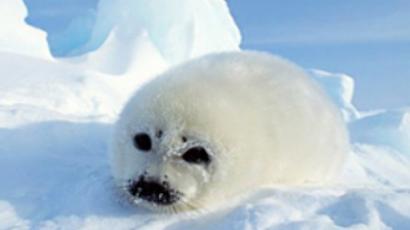Chinese poachers threaten fish stocks
Poaching has become an increasing threat to wildlife on the Amur River in eastern Siberia. The river is one of the world's longest, and forms a natural border between Russia's Far East and China.
A lot of the poaching is blamed on fishermen from poor regions in China. Their illegal hunting is a growing problem for Russian border guards.
The Amur River, the ninth longest in the world, is one of the planet's richest in fish; it boasts more than a hundred species.
The river forms a natural border between Russia and China. The frontier city of Khabarovs is where Russian border guards are having trouble with fisherman from the other side.
Border guards have increased patrols along the 700-kilometre long section that makes up the boundary. The last six months have seen massive problems with Chinese fisherman crossing illegaly and poaching.
Hundreds of tones of fish and caviar are poached every year. The peak of the illegal activity is spawning time. Over-fishing has already wiped out some species altogether. Border guards work day and night, but they can't stop every poacher.
“In just half a year, 70 cases of illegal entry by Chinese fishermen have been recorded. Eighty-five kilometres of fishing nets and seven kilometres of tackle have been confiscated. We estimate the prevented damage at about US$ 800,000,” Zakharov from the border control department of the FSB said.
The river provinces just over the border are among the poorest in China. And according to patrol boat captain Valery Konev, the poverty has made the poachers fearless.
“They are very aggressive. Nothing and nobody can stop them. They're willing to take the risk, because if they get away with it, their catch can provide them and their families with money for at least half a year,” Konev said.
However, Russian officials say combating the poachers is one part of the battle to preserve precious salmon and sturgeon stocks.
Two breeding factories have been built in order to give the fish a better chance of survival.
Salmon spawn just once in their lifetime. Less than 10 per cent of their eggs grow into fish. In the factories, that percentage is dramatically increased.
Anatoly Romanenko of the Amur Fish breeding factory says that their plant has helped pump up the population while also satisfying the large demand for Russian caviar.
“We let them go and in three years time they return to spawn here – it's like they have GPRS navigators, they know where to go, so they come here and give us their caviar. As if to thank us,” says Romanenko.
By 2013, five more fish breeding factories are expected to be built here, which will bring the region some 10,000 extra tonnes of salmon and sturgeon every year. Hopefully, it will be enough to reverse some of the damage done by the poachers.
Sturgeon snatched in poaching crackdown
Shake-up for Russian fishing industry
Poachers face crackdown













